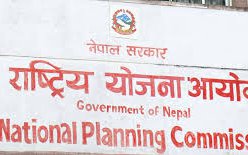More on News





“Orphanage volunteering,” a term referred to volunteering by tourists at orphanages or child care homes, have the potential to inflict emotional damage to children as well as contribute to child displacement, said Next Generation Nepal (NGN) and UNICEF in a conference organized on the issue.
The event was attended by Constituent Assembly Member Ranju Thakur, Krishna Prasad Poudyal, Director General of the Department of Women and Children, officials from the Central Child Welfare Board (CCWB), UNICEF, NGN, Nepal Tourism Board, Embassy of the United States of America, as well as representatives of the media and civil society.
According to a press release issued by UNICEF, An increasing number of tourists are visiting Nepal every year many of whom volunteer. One of the most popular programs is to volunteer with children, including at child care homes. While tourism provides key economic benefits to Nepal, research has indicated that, despite being well-intentioned, short-term volunteers have the potential to cause emotional and psychological damage to children in these institutions by contributing to abandonment issues.
Orphanage volunteering is also contributing to the separation of vulnerable children from their families in Nepal. A majority of the children in these institutions have at least one living parent who can raise them, data shows.
“Any actions for children including ones related to their alternative care should be guided by the principles of the ‘best interest of the child’ and not by the desires of adults including volunteers even if their acts are based on the best of their intentions towards children,” said Tomoo Hozumi, UNICEF Representative to Nepal. “Children should be placed in alternative care only if it is unavoidable and deemed appropriate for the individual child’s needs through careful and systematic assessment.”
The event also included the launch of NGN’s report “The Paradox of Orphanage Volunteering: Combating Child Trafficking through Ethical Voluntourism” as well as presentations of initial findings of recent researches on orphanage volunteering in Nepal and other developing countries by UNICEF and the Better Volunteering, Better Care project.
Recent data from the CCWB indicates that orphanages in Nepal contain over 16,000 children and a majority of these orphanages are located in tourist destinations like Kathmandu, Lalitpur, Bhaktapur, Kaski and Chitwan. NGN indicates in its report that fee-paying foreign volunteers and donors are lured in by majority of these institutions using children as poverty commodities to raise funds.
The report launched by NGN also reviews the history of orphanage trafficking, which stems back to the Karnali region during the civil war when parents looked to brokers to help their children escape forced conscription into the rebel army. It analyzes the growing global phenomenon of orphanage voluntourism and reviews examples of ethical volunteering in Nepal and internationally which others can learn from. NGN advises against orphanage volunteering but makes a number of recommendations on how to practice ethical volunteering.
UNICEF’s research included profiling the volunteers in an effort to learn more about their motivation and how they were placed at orphanages. A majority of the volunteers are unaware of the negative impacts of their well-intentioned actions highlighting the need to increase awareness about the issue among embassies, travelers and travel agencies, according to the initial findings of the research.
Better Volunteering, Better Care Project presented about its research on orphanage volunteering in developing nations and concluded that there are parallels between the issue in these countries and Nepal. For example, all the nations are top tourist destinations and have low level of education in the rural areas.







